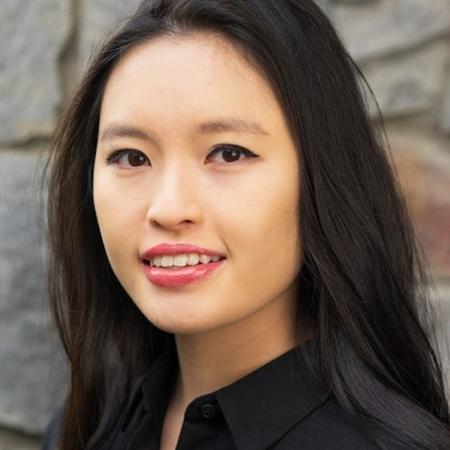An interview with Vanessa Le
Vanessa Le discusses the inspiration for her debut YA novel The Last Bloodcarver, how she became a published author, and books she looks forward to reading.
Hi, Vanessa! Can you tell our readers a bit about yourself?
My name is Vanessa Le, and I'm the debut author of The Last Bloodcarver! I'm a huge fan of science and fantasy both—I studied biology in college and now I'm studying medicine—so my writing has always been a combination of those two loves. It only makes sense that my debut is a story about a daughter of immigrants gifted with the power to heal.
When did you first discover your love for writing and stories?
I don't know if I can place my finger on any specific moment where I first discovered a love for storytelling—I feel like I've always loved stories. I was a reader first; I devoured basically any book I came across. My first "novels" were inspired by the stories I consumed, across many mediums: books, movies, video games, and anime.
However, in college, I took a beig step back from writing and reading for pleasure to focus on my pre-med studies. Strangely enough, it was the pandemic that reignited my love for writing. Not only did the online classes give me a lot more mental space to write, but my hiatus from creativity gave me space to figure out who I was—and what I wanted to say through my writing. That was the moment I fell in love with writing again: when my stories felt truly mine.
Quick lightning round! Tell us:
- The first book you ever remember reading: The Tale of Despereaux by Kate DiCamillo
- The one that made you want to become an author: Skulduggery Pleasant by Derek Landy
- The one that you can't stop thinking about: The Book Thief by Markus Zusak
Your debut novel, The Last Bloodcarver, is out now! If you could only describe it in five words, what would they be?
Medical, brutal, serpentine, heartfelt, and authentic.
What can readers expect?
The Last Bloodcarver is a YA science fantasy with a dash of mystery, so expect some familiar tropes: a whodunnit? plotline, a love interest with secrets, and a tenacious heroine with a dangerous curiosity. However, this book has elements that are very personal to me as well. What seems like a story about a dead man and his murderer is really a story about reconnecting with one's culture and learning to live with the burden of legacy. In addition, readers can expect a fun magic system that combines my two loves: science and fantasy. Hopefully, there's something for everyone in
The Last Bloodcarver: suspense, romance, sincerity, and homecoming.
Where did the inspiration for The Last Bloodcarver come from?
I wrote
The Last Bloodcarver during the pandemic, when being Asian felt isolating. And it was a very interesting time in my life—applying to medical school and watching my grandmother go through the stages of dementia. I felt this enormous yet self-inflicted burden of legacy, the idea that I had to be a certain way or achieve certain things or remember certain customs if I wanted to honor my family. Inevitably, I needed somewhere to put all these thoughts, and The Last Bloodcarver was a ready punching bag. Nhika's journey was really my own journey, and everything else formed around it naturally because I was writing very close to heart. She's a daughter of immigrants, the world is a mixture of Western and Eastern influences, and the magic system is intensely biological. The words had never flowed so easily on the page.
Were there any moments or characters you really enjoyed writing or exploring?
I loved writing Nhika's medical magic system—her heartsoothing. Each instance felt a bit like a challenge to me: translate something scientific into something fantastical yet accurate. I also had so much fun choosing each specific illness or injury used in
The Last Bloodcarver and its sequel. It was a puzzle to find just the right affliction that would not only fit into the plot, but also convey the symbology of the moment in a scientifically sound manner—but when I did, it was like magic.
Otherwise, I loved writing Trin and Nhika's sibling-like relationship. Of all the characters in the book, their dynamic evolves the greatest and is the most meaningful relationship I wanted to convey. Writing that balance between distrust and respect was incredibly enjoyable. When looking back on
The Last Blooodcarver now, I'm still very proud of these moments.
This is your debut published novel! What was the road to becoming a published author like for you?
It was both so fast and so slow.
First, it was fast. I wrote
The Last Bloodcarver over 2-3 months in 2022, after I'd graduated from college. Originally, I wrote the novel for Pitch Wars, a now-dead (RIP) mentorship contest. However, thanks to #DVPit, a pitch event on Twitter (where we pitch our stories to agents in a post format), I got multiple agent offers and withdrew my application from the contest. I signed with Ramona Pina at BookEnds Agency, who has been a wonderful advocate and amazing agent on this journey. We submitted the manuscript to editors in February of 2023 and got an offer from Roaring Brook Press that same month! It was a complete whirlwind for those first couple months.
Unless otherwise stated, this interview was conducted at the time the book was first published, and is reproduced with permission of the publisher.
This interview may not be reproduced or reprinted without permission in writing from the copyright holder.
Membership Advantages
- Reviews
- "Beyond the Book" articles
- Free books to read and review (US only)
- Find books by time period, setting & theme
- Read-alike suggestions by book and author
- Book club discussions
- and much more!
-
Just $60 for 12 months or
$20 for 3 months.
- More about membership!
